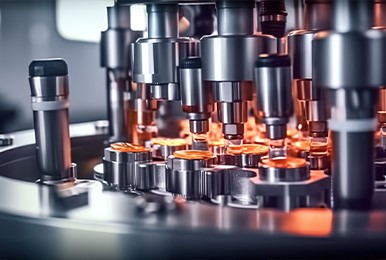Spare Part Production Processes
Raw Material Preparation: Spare parts production starts with the procurement of raw materials such as quality steel, aluminum, plastic and rubber. These materials are subjected to strict quality control processes to ensure their suitability for production. The quality of the materials has a direct impact on the durability and performance of the final product.
Cutting and Forming: The raw material is cut and shaped into various sizes and shapes. This is accomplished using CNC machines, laser cutters and press machines. The cutting and forming processes ensure that parts are manufactured with precision.
Heat Treatment: Shaped parts are heat treated to increase their strength. In this process, parts are heated to specific temperatures and then rapidly cooled. Heat treatment improves the mechanical properties of the parts and ensures their long life.
Surface Treatment: Various surface treatments are applied to improve the surface quality of parts and protect against corrosion. These processes are performed by methods such as coating, painting, anodization or electroplating. Surface treatments increase the aesthetic appearance and durability of parts.
Assembly: On the production line, parts are assembled to form larger assembly groups or end products. The assembly process is carried out using hand tools, automated assembly lines and robotic systems. This stage ensures the functionality and reliability of products.
Testing and Quality Control: At each stage of the production process, parts are subjected to various tests and quality control processes. Dimensional accuracy, mechanical strength and performance tests are performed. These tests ensure that the parts comply with international standards and meet customer expectations.

Critical operations in spare parts production include raw material preparation and input control and correct material selection, cutting accuracy and machine settings control in cutting and forming processes, determination of appropriate parameters and control of material structure in heat treatment, ensuring coating thickness and homogeneity in surface treatments, control of machining tolerances and surface roughness in precision machining processes, correct part sequencing and testing of connections in the assembly phase, quality control including dimensional accuracy and performance tests at every stage, and correct packaging materials and labeling in packaging and storage. These critical points aim to reduce costs while increasing the efficiency of production processes and product quality.
MES (Manufacturing Execution Systems) systems offer a range of capabilities to monitor, control and optimize critical operations in spare parts manufacturing. These systems use data collected at every stage of the production process to improve the efficiency of operations and maintain quality.

